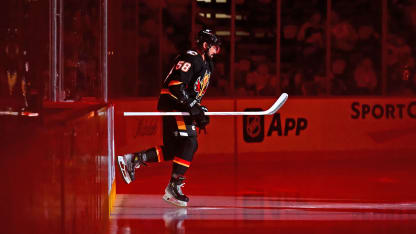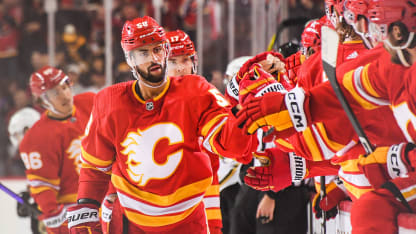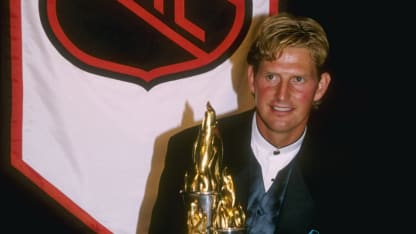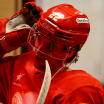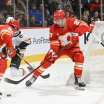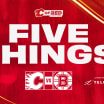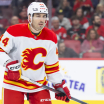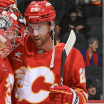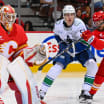Admittedly, there was a time when Oliver Kylington couldn’t think about hockey at all.
Let alone, commit his life to the sport with a tortuous, ubiquitous, and highly personal mental-health battle to conquer first.
“There were times in my process where I couldn't allow that,” said Kylington, who returned to the Flames lineup on Jan. 25 after a year-and-a-half away, and almost immediately found joy again. “There was a lot of stuff in my personal life that was eating me up and I had to really be there for myself in a different way than I ever had before.
“I had to find my values in life that have nothing to do with hockey.
“A foundation.
“It was about reclaiming myself. And once I did that, I could then do the same for hockey, which made it all feel very special. I began appreciating all the small things in life that come with hockey. You’re obviously very privileged to play a game that you've enjoyed playing as a kid, and are now lucky enough to make it as a lifestyle.
“I definitely don’t take it for granted.
“Now, more than ever.”
On Thursday, Kylington was announced as one of three finalists for the Bill Masterton Trophy – an award given annually to the player “who best exemplifies the qualities of perseverance, sportsmanship and dedication to hockey.”
Richly deserved.
Yet, incredibly humbling for the soft-spoken blueliner, who over the past two years, has become an inspiration for so many.
"This is something I never thought would happen in my life," Kylington said of the honour. "I'm realizing more and more what this award means and how special it is. I'm so honoured, so grateful, and so, so excited."
When Kylington stepped away from the game after an impeccable showing in the 2022 playoffs, the decision didn’t come easy. He worked his entire life to get to that point and didn’t know if the game would be there for waiting for him on the other side – whenever that would be.
“It hasn't been easy for him and it hasn't been easy for us teammates, either,” said captain Mikael Backlund. “Guys who were here when he played his last game (in 2022) were all wondering when – or if – he was going to come back, and obviously our concern was about him as a person more than the player.
"But we were all super excited to see him come back this year. I'm so proud of him for having the courage to take a break and deal with what he needed to. He's a known figure, pretty famous in Calgary being an NHL player, and it's not easy to take time off to deal with that kind of stuff. But I'm proud that he did and you can tell that he's a happier person now, is doing a lot better.
“Then, the transition to him coming back, he was playing so well for us this year and it was pretty crazy how well he played right off the hop.
“It’s well deserved. Hopefully he wins it.”

